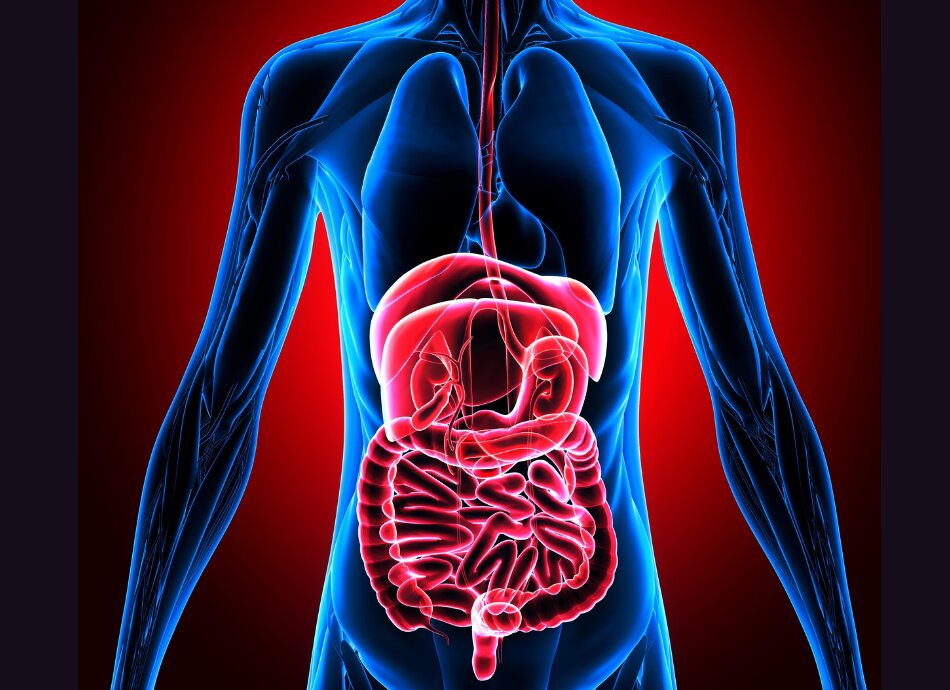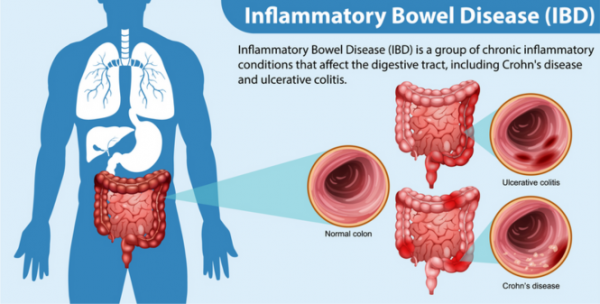You can now add Healthify as a preferred source on Google. Click here to see us when you search Google.
Inflammatory bowel disease
Also known as IBD
Key points about inflammatory bowel disease
- Inflammatory bowel disease (IBD) mainly describes 2 long-term conditions that cause inflammation of your gut.
- The 2 main forms of IBD are Crohn’s disease and ulcerative colitis. Although there are no cures for these conditions, there are treatments that can help relieve your symptoms and stop them coming back.
- Ulcerative colitis only affects the colon (large intestine). Crohn's disease can affect any part of the digestive system, from your mouth to your anus. There's also a rare form of IBD called microscopic colitis.
- This page provides a brief overview of Crohn's disease and ulcerative colitis, videos about IBD, and links so you can find out more on the Healthify site.

Inflammatory bowel disease (IBD) is the name for certain conditions that cause your intestines (gut) to become inflamed, red and swollen. The 2 main types of IBD are Crohn’s disease and ulcerative colitis. Crohn’s disease and ulcerative colitis are chronic (long-term) conditions. There's also a rare form of IBD called microscopic colitis.
IBD is mainly diagnosed in young adults (15 to 30 years of age), but it can start at any age. It can run in families. Aotearoa New Zealand has one of the highest rates of IBD in the world.
Note: IBD is not the same as irritable bowel syndrome (IBS), which is sometimes called irritable bowel disease. IBS doesn't involve inflammation of the gut but has symptoms including abdominal cramping, bloating, diarrhoea and constipation. IBS is more common than IBD and is treated with lifestyle changes.
Ulcerative colitis only affects the large intestine (large bowel or colon). Crohn’s disease can affect any part of your digestive system from the mouth to the anus (nono or bum).
The image below shows a normal colon as well as examples of ulcerative colitis and Crohn's disease.

Image credit: Depositphotos
There are some IBD symptoms that are common to both ulcerative colitis and Crohn's disease and some are different
Ulcerative colitis symptoms include:
- diarrhoea (runny poos)
- urgent need to pass poos
- blood or mucus in your stools (poo)
- abdominal (tummy) pain and discomfort
- tiredness or fatigue.
Crohn's disease symptoms include:
- abdominal (tummy) pain
- diarrhoea (runny poos)
- urgent need to pass poos
- nausea (feeling sick) and vomiting (being sick)
- fever
- loss of appetite and weight loss
- tiredness or fatigue
- slow growth in children
- lesions or pain around your bottom.
Contact your healthcare provider if you or your child have any of these symptoms.
Video: What are Crohn's and colitis?
This video may take a few moments to load.
(Crohn's & Colitis UK, 2018)
Video: Inflammatory bowel disease (IBD)
This video may take a few moments to load.
(Health Knowledge Works & Mercury Films Inc, 2013)
Support
You can get support for IBD from Crohn's and Colitis New Zealand(external link)
Brochures
Fact Sheet about Crohn's disease and ulcerative colitis(external link) Crohn's & Colitis Foundation, US
Living with inflammatory bowel disease – handbook(external link) Crohn's & Colitis New Zealand
References
- Inflammatory bowel diseases(external link) Gut Foundation, NZ
- Morton H, Coad J, Pedley KC, Irwin JR. Incidence of inflammatory bowel disease in New Zealand remains high, findings in the Manawatū region(external link) Dig Dis Sci 2023;68(11):4230-4242
- Inflammatory bowel disease – a focus on Crohn's disease and ulcerative colitis(external link) BPAC, NZ, 2021
Credits: Healthify editorial team. Healthify is brought to you by Health Navigator Charitable Trust.
Reviewed by: Dr Emma Dunning, Clinical Advisor and Editor
Last reviewed:





